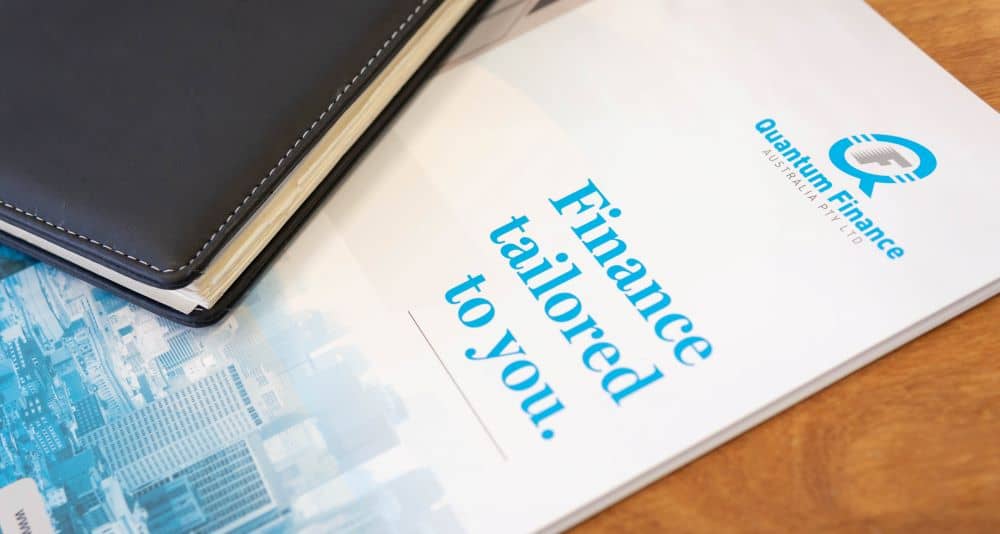
Important Facts About Deceased Estate Sales
Dealing and managing a deceased estate is something many of us will have to face at some point in our lives. It can be a bit of a burden, but having some familiarity with what it is and what it involves may hopefully ease the difficulty.
However, it’s worth remembering that there may be some differences in the laws applied to the assets of a deceased person. For the most part, it depends on the state or territory where the deceased person lived upon death.
What is a Deceased Estate?
A deceased estate is simply an estate that belonged to a person when they died. It entails the following:
- Real estate property
- Money in bank accounts
- Personal belongings, including jewellery and furniture
- Shares
- Liabilities, such as personal loans and mortgages
- Debts
- Other types of income
There are some assets, however, that are not included in a deceased estate. In such a case, it means that the deceased may have either made other arrangements for those assets or own them as a joint tenant. If the deceased had debts and liabilities, they are usually paid out first with the estate assets. The remaining amount and other properties will then be distributed to the appointed beneficiaries.
It’s crucial to have a will that instructs family members and other relevant individuals about how the estate will be divided.
In Australia, the government does not impose any tax on inheritance properties. In general, there are no death duties in the country. However, taxes may be required to get paid with a certain income, which may be a consequence of the death.
Upon death, the person responsible for the deceased estate and the instructions that come with it will be the legal personal representative. This individual may be an administrator or executor that the court has appointed. In other cases where the will does not exist, the next of kin is expected to represent the estate. If unavailable, an administrator will take the responsibility but will once again be appointed by the court.
The Stigma Attached to a Deceased Estate
For some real estate experts, deceased estates are the holy grails of the industry. With a good location in a well-known suburb, motivated seller, and a property in excellent condition, these properties are what buyers are looking for.
But even with all the potential, there is still something at the back of your head as a buyer: the stigma attached to it.
A deceased estate is a property owned by someone who is six feet under. Both the psychology and superstitious beliefs about such a building may not be particularly pertinent to investors. However, some people may find it disturbing to live in a home where someone died.
This type of property earns its name because it was where the deceased stayed. The executors then send it to auction where potential buyers give their offers. One thing to know is that the deceased does not necessarily mean they died right there in the house.
In fact, it is highly unlikely that they did.
According to statistics, less than 10 per cent of Australians die at home because most occur in hospitals, both natural and accidental deaths.
Unfortunately, it is quite unclear whether real estate agents should disclose to the buyers if someone died in the house. In reality, most states have a hazy law regarding such a case. The buyer can only know about it if the question is directly asked.
The circumstances may be grim, but it is usually not a factor to consider if you’re an investor. Deceased estates have great potential for everyone, including first-time homebuyers and seasoned investors.
Is It a Good Idea to Buy a Deceased Estate Property?
Before purchasing a deceased estate, it is necessary to research the whys and why not’s of this decision. Should you buy this type of property or avoid the headaches that could come with it? Here is a list of the pros and cons of buying a deceased estate to help you with the final choice.
Let us talk about the pros first:
- You will deal with a motivated seller. This is a huge benefit. When the seller or the executor of the state sells the property, they are often willing to accept the market value offer. If you buy it, you can sell the property fairly quickly. The process typically involves an auction.
- The property may be sold at a bargain price. Because the seller is motivated and the property is at market value, it’s a good deal. Whether you plan to live in the house as an owner-occupier or you are an investor looking for properties in the area, a deceased estate is a good opportunity that you do not want to miss.
- There is a potential for profit if you plan to resell the property. It’s not surprising that living relatives want to receive a check and get rid of the property as quickly as possible.
- It’s a great property for renovation. More often than not, deceased estates are old. It can be land where you can establish a building or a house that requires further improvement. It surely is every renovator’s dream.
- Finding a deceased estate is relatively straightforward. Whether you’re a beginner or experienced in investing in properties, it’s easy to find deceased estates. Public trustees have listings that you can access at a local level. Plus, there are websites where you can search for auctions that may be happening in your area.
Cons or disadvantages of buying a deceased estate:
- The property could be in bad condition. Since the property may be old or at a bargain price, you may want to lower your expectations. Many deceased estates have been overlooked for years, which may need extensive repair, meaning additional expense.
- Deceased estates are commonly thought to be old properties. While it is not generally a bad thing, many buyers want a newer, more modern property. When buyers are offered a deceased estate, most of them will conjure the image of old weatherboards, empty, dark rooms, and cobwebs.
- There may be illegal modifications. As the buyer, you have to be aware of the changes that the owner made, which may even be against the state’s regulations.
- The legal process can be complicated. Due diligence is required to make sure that the letter of administration (probate) and ownership structure of the property is taken care of. That way, you will not have any issues when the sale ensues. An example is when other family members challenge the will. Even if legal paperwork has been arranged and grant of probate is in order, challenges can still apply. It is especially true if the person died just a few months before the property has been put up for sale. In most states, including Western Australia, a will can be challenged up to six months after its disclosure to the family, relatives, and beneficiaries. It is why the buyer should be cautious. Asking how long the deceased left the estate to the living is certainly a good idea.
- You could have a lot of competition. Because of the advantages we have mentioned above, you could face fierce competition with other buyers. These people have the same idea as you, which means that they will try to outdo you, such as through their price offers at the auction.
While the limitations may turn anyone off from buying a deceased estate, there is always a way around them. The above disadvantages can often be offset by having professional inspection first. It allows you to determine whether or not it is worth the penny you plan on investing. Are there secret features that might hurt the value of the property should you resell it? Is there a faulty wiring, plumbing issues, or a leaky roof?
What about the general value of the properties in the area? If it is declining in value, you may want to look for another option. It will often be difficult to sell the property and profit from it as you may have intended.
All types of property investments have advantages and disadvantages. The key is adequate and proper research to understand how a deceased estate works. The buyer should also invest in time and effort to make sure all inspections are carried out to assess the potential value and costs for improvement of the property. That way, the venture can become incredibly lucrative.
Buying a Deceased Estate
If you plan to purchase a deceased estate, the process is not always as straightforward as new construction. It helps if you take the following steps, which cover all the rules and legalities that may be involved:
1. Make Sure You Do Your Research About Deceased Estates
Buying a deceased estate, as you can see from above, has several benefits. If successfully bought, you secure a property, which is often located in a good area. Even better, it has a very attractive price, which guarantees profit if you resell it. However, you should remember that there are tax and legal implications attached to the property.
Before buying, it’s essential to raise specific questions, mainly because legislation differs from one state to another.
Make sure that you ask the following:
- Is the property title already transferred to the surviving spouse or beneficiary? If there is none, is it already in the name of the executor?
- Is the validity of the will proven through probate or letter of administration?
- Does the property have a mortgage on it? Has it received consent or approval from the lender for the title to be transferred?
A common misconception about deceased estates is that they are equal, all with good investment opportunities. But the truth is far from it. To avoid any confusion and make the wrong choices, seek help from professionals. Some people you may want to get in touch with are conveyancers, tax specialists, and buyer support groups. You may also contact the executor who can help you understand the entire process, including documents and legalities.
2. Find a Deceased Estate
An online search will allow you to locate a property within the area of your choice. Some of the best sources are the National Mortgage and Deceased Estate Data and Select Property Invest. These two websites offer you a list of properties that are currently up for sale. Another option is to get help from real estate agencies, which also have listings of deceased estates.
3. Hire Professionals
If you already had an experience buying a home or commercial property before, you know it is much easier if you do not work alone. Recruiting a team comprised of professionals can get you through the process faster and simpler. Some of the people you can hire are a buyer’s agent, real estate agent, finance broker, property lawyer, conveyancer, and accountant. You will also need to be in constant contact with the appointed executor or solicitor.
4. Be Ready With Your Finances
The last thing you want is to be ill-prepared when it comes to finances. Get all the requirements in order, including your finances, to move forward quickly. Remember that you could have numerous competitors looking to secure the same property. Aim to have at least 20% of the total amount of the property when you make a deposit, which will allow you to avoid the lenders’ mortgage insurance (LMI).
Do you require financing assistance? Contact Quantum Finance today so we can help you find the lender and loan product that best suit your needs.
5. Get a Copy of the Proof of Will (Probate) or Administration
The letter of administration tells you that the will is valid and that you are dealing with the real executor of the deceased’s property. Once you have the letters of administration, it means that the sale will continue; otherwise, you may have to wait. The sale can take a long time to get approved if these documents are not present.
6. Review the Ownership Structure of the Property
In some states, specifically New South Wales and Queensland, properties are not allowed to be on sale if it is in the name of the deceased. Therefore, you should first check that the property is in the name of the surviving spouse or executor before purchasing. If not, the property cannot be transferred. This process can take a long time, typically from one to two weeks. However, it can take longer, particularly if the mortgage is under the property title.
On the other hand, if the property title will be transferred to the executor, the process can go on for as long as three months. If you’re in a hurry to buy a property, a deceased estate may not be the perfect option for you, unless the title is no longer under the deceased person.
7. The Transaction Process Takes Place
An auction is usually held to sell the estate where the price has been agreed upon by both the buyer and the executor. As the buyer, you should pay the deposit. With the probate granted, the sale will move on as usual.
Still, Considering Buying a House From a Deceased Estate?
It seems that a lot of buyers are now seeing the benefits that come with buying a deceased estate property. It has attracted a lot of buyers, including those who are up for the challenge. With many people interested, the highest bidder often wins. Even with the competition, deceased estates usually have a reasonable price.
Renovators and developers searching to earn profits by fixing old, rundown homes will certainly find deceased estates appealing. Often, these properties are period-style and are located in established areas, making them a great buy. Renovation does not always have to be expensive. Some homes only require landscaping, new paint and carpeting, and perhaps minor electrical work. Of course, other houses need more complex jobs, including rewiring, restumping, and replastering, among others.
It makes sense that purchasers understand what the value vs cost will be, along with the potential profit after the renovation and sale. As always, with every property purchase, logic should take control over emotions. And deceased estates are an example of properties that you should do a lot of research on. The offer may appear compelling, but the renovation and additional costs may not be worth the investment. The trick is to look for a motivated seller to pick up a great deal out of a deceased estate.
Legalities and Governing Bodies Concerning Deceased Estates in Australia
Part of your research about deceased estates should cover tax implications surrounding this type of property. The sale and purchase taxes are all controlled by the Australian Taxation Office (ATO). According to the ATO, the deceased’s assets will depend on the state where the person was when they died.
The deceased estate has the assets in trust starting from the time of death until the transfer of all these assets to the beneficiaries, as stated in the will. The process is administered by an executor named in the person’s will or an administrator that the Supreme Court has appointed. Meanwhile, superannuation, along with payments for life insurance policies may not be included in the deceased estate. However, if these policies contain names of beneficiaries, the payments may be given directly to them without considering them as part of the deceased estate.
The executor or administrator will take over the role of the deceased, supervising personal affairs.
Some of the tasks that should be performed typically include:
- Arranging the funeral
- Locating and executing the will
- Applying for probate
- Getting the death certificate
- Informing organisations about the death, such as banks, share registries, and building societies
- Communicating with the ATO and Centrelink about the death
- Locating assets and preparing them for valuation
- Paying debts and expenses, such as funeral and income tax costs
- Transferring properties
- Paying stamp duty
The surplus will be distributed to the nominated beneficiaries by the executor. Although there are no death duties in the country, the tax may still be paid on certain transactions. Any tax liability that may have arisen due to the executor’s role will not be considered that person’s personal tax liability. That means the income of the deceased estate and the person who died should not be included in the income statement of the executor. The only exception is if any trust income is received as a result of being a beneficiary.
If you’re wondering about the power of attorney and whether it will still be used, the answer is no. The enduring powers and all other powers of the lawyer immediately stop from the time the individual who granted that power dies. A certain person appointed under a power of attorney no longer has that power to access the assets. The executor or the administrator is the only one entitled to these assets.
The executor is required to sell the property according to the instructions provided in the will. There may be more than one beneficiary names in the document. As a result, an auction may be performed for the sale to commence. The property can be on the market before the probate process finishes. The reason behind this is that the executor can get the title and authority to enact the directions stated in the will (not from the probate).
What about a Potential Mortgage?
If you are the beneficiary of the real estate, it means you inherit the property. You may already know that it could come with the outstanding mortgage. Do you inherit that, as well? Yes.
There are so many things going on upon death, from making funeral arrangements to carrying out the will of the deceased. Because of how busy the environment can be, settling debts can be pushed aside. As a result, the beneficiaries tend to sell the property, which allows them to pay out the mortgage. Most of the time, it happens when the lender begins assessing the ability of the beneficiary to make the repayments.
It’s a common issue where the beneficiary’s sole income is not enough to repay that loan. People usually want to remain in the property, especially if it is the family home. The problem is that they can fall into arrears, making it difficult to refinance the home loan. Refinancing loans is often helpful in this case because of the possibility of accessing cheaper interest rates. With a lower interest, the beneficiary has a bigger chance of continuing the mortgage payments. If you’re in this situation, we encourage you to try refinancing your loan through Quantum Finance.
Do you need help in finalising a loved one’s deceased estate? You’ve come to the right place! As mortgage brokers, however, we cannot give you any advice or recommendations on anything legal or implications on your taxes. But here’s what we can do. If you have shared the property with the deceased (known as a joint owner), we can evaluate some of your financial situations. You can then understand if refinancing is the best way to keep your home.
Meanwhile, if you’re a developer, investor, or renovator, we’re here for you, too! We have access to lenders that will help you no matter what your situation may be. We can assist you in locating the right loan to secure the deceased estate property you wish to buy.




